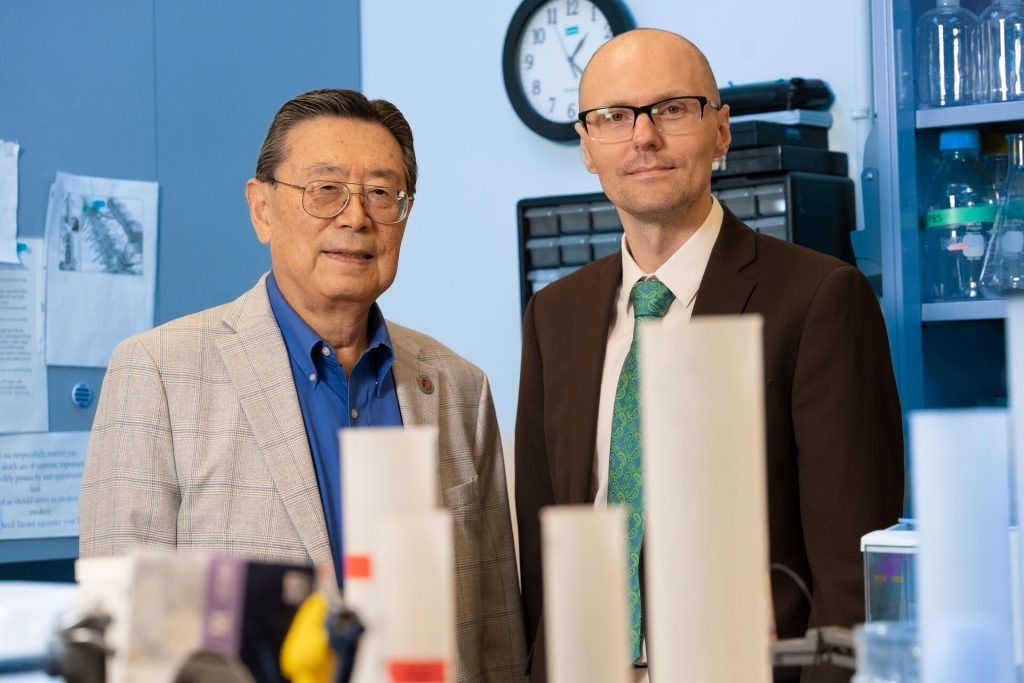A compound originally developed at Stony Brook now in clinical development by Artelo Biosciences completes safety review
A non-opioid investigational drug with promising pre-clinical results in treating neuropathic pain has passed an important hurdle after the study’s safety review committee (SRC) reviewed the data from initial volunteers and recommended to progress into the next dose level in a first-in-human clinical trial.
The drug, ART26.12, is being developed by Artelo Biosciences, Inc, based in Solana Beach, Calif. The compound was discovered and initially developed by Stony Brook University’s Iwao Ojima, PhD, and Martin Kaczocha, PhD. The technology is based on a class of fatty acid binding proteins (FABPs) inhibitors, including what is now ART26.12, and was licensed to Artelo in 2018 by the Research Foundation for the State University of New York.
Neuropathic pain is estimated to affect about eight percent of the U.S. population, which translates to approximately 20 million people. ART26.12 is being developed specifically for chemotherapy-induced peripheral neuropathy, which remains a serious adverse problem for patients during cancer therapy and post therapy.
Dr. Ojima and colleagues selected FABPs as drug targets of the body’s endocannabinoid system to modulate lipids within the cell for a potentially promising way to treat pain, inflammation and cancer. According to Artelo, ART26.12 is the lead compound in Artelo’s proprietary FABP platform and is believed to be the first-ever selective FABP5 inhibitor (5 indicates a specific protein) to enter clinical trials.
 Drs. Iwao Ojima, left, and Martin Kaczocha in a Stony Brook University laboratory.
Drs. Iwao Ojima, left, and Martin Kaczocha in a Stony Brook University laboratory.Credit: John Griffin, Stony Brook University
